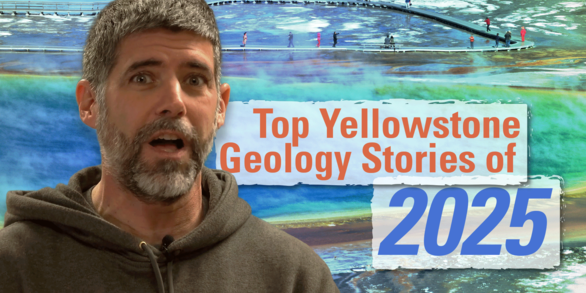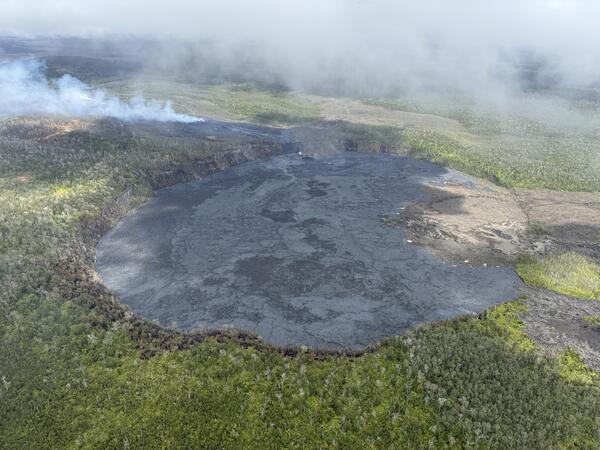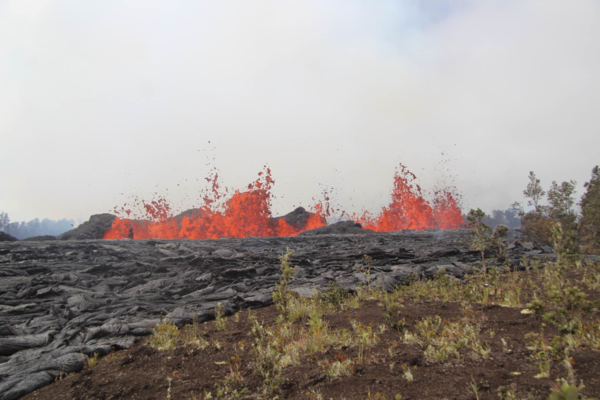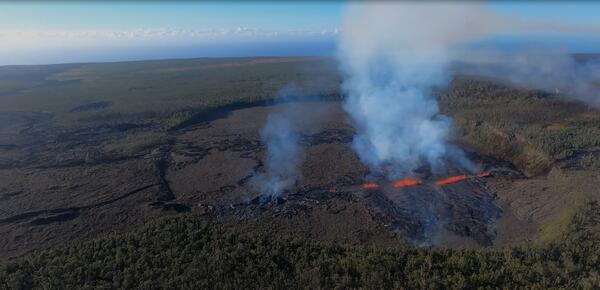December 29, 2024 — Increased fountaining vigor at Kīlauea summit
December 29, 2024 — Increased fountaining vigor at Kīlauea summitFountaining at Kīlauea summit increased in vigor on December 29. USGS Hawaiian Volcano Observatory geologists on the crater rim the morning of December 29 observed an increase in height throughout their field shift, up to about 40 m (130 feet). Lava effusion was also starting to form a perched lava pond in front of the vents. USGS video by M. Patrick.
























